Leadership Roles and Organizational Performance at University
VerifiedAdded on 2023/01/19
|5
|918
|45
Report
AI Summary
This report investigates the critical relationship between leadership roles and organizational performance. It begins with an introduction that establishes the importance of leadership in maintaining organizational efficiency and outlines the research aim, objectives, questions, and problem. The study aims to identify the different leadership roles played by entrepreneurs and how they contribute to business operations. The research objectives include understanding leadership roles, examining metrics influencing performance, evaluating the relationship between leadership and performance, and suggesting leadership activities to enhance performance. The methodology section describes the use of interpretivism and a deductive approach to analyze existing theories and models, along with an explanatory research design to delineate the cause-effect relationship between leadership roles and organizational performance. The data collection will be based on secondary sources, including journals, blogs, and articles, to ensure the study's authenticity. The report concludes by referencing relevant sources that support the research findings and analysis.
1 out of 5
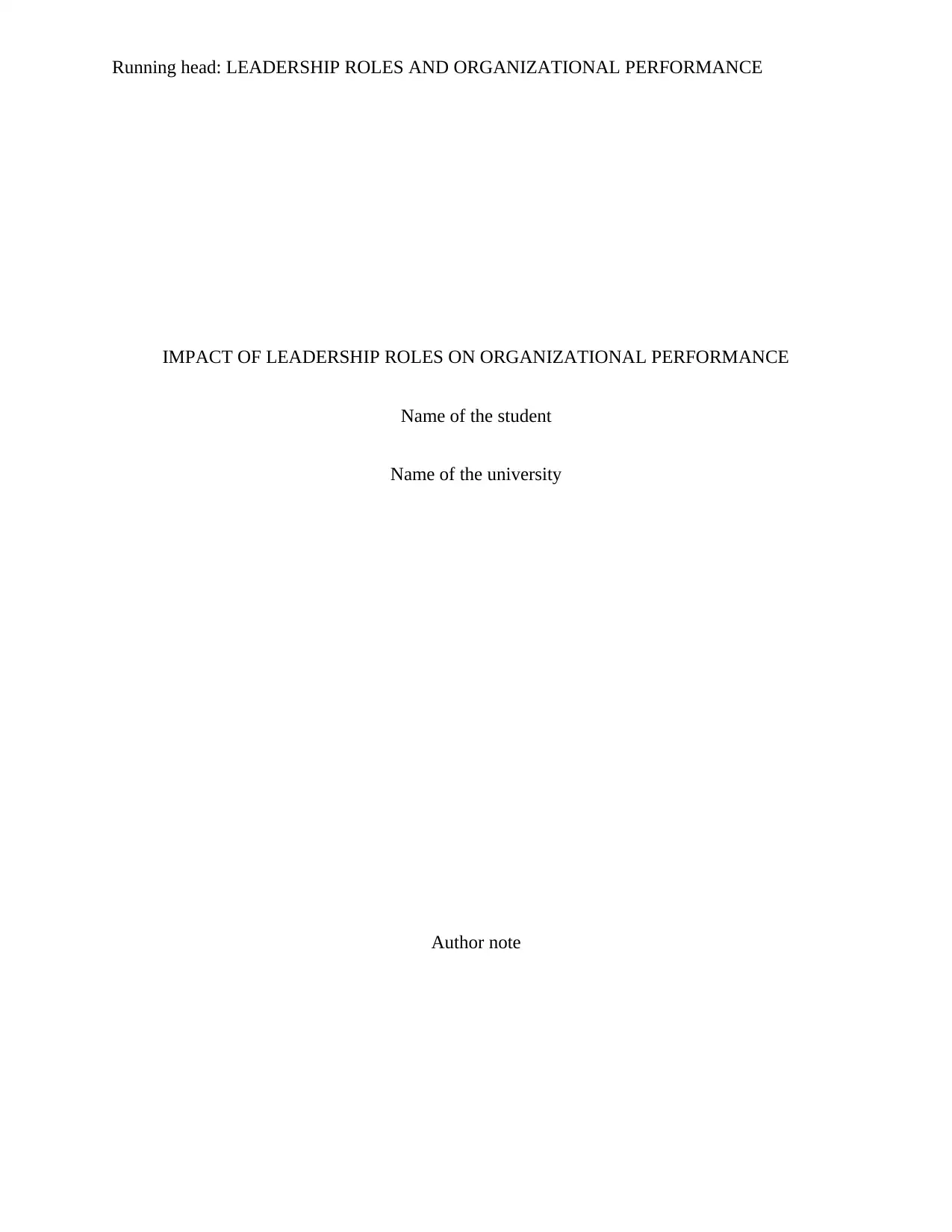
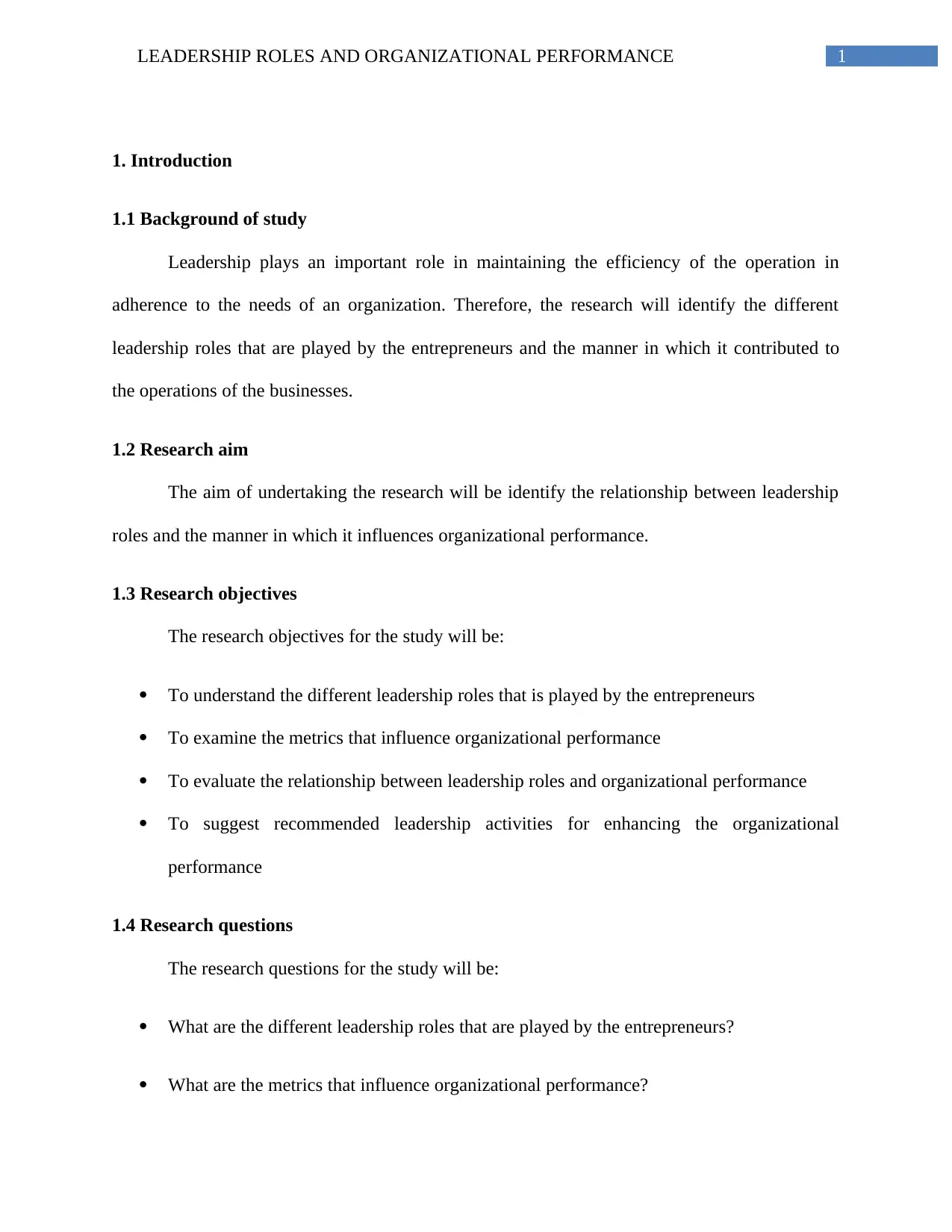
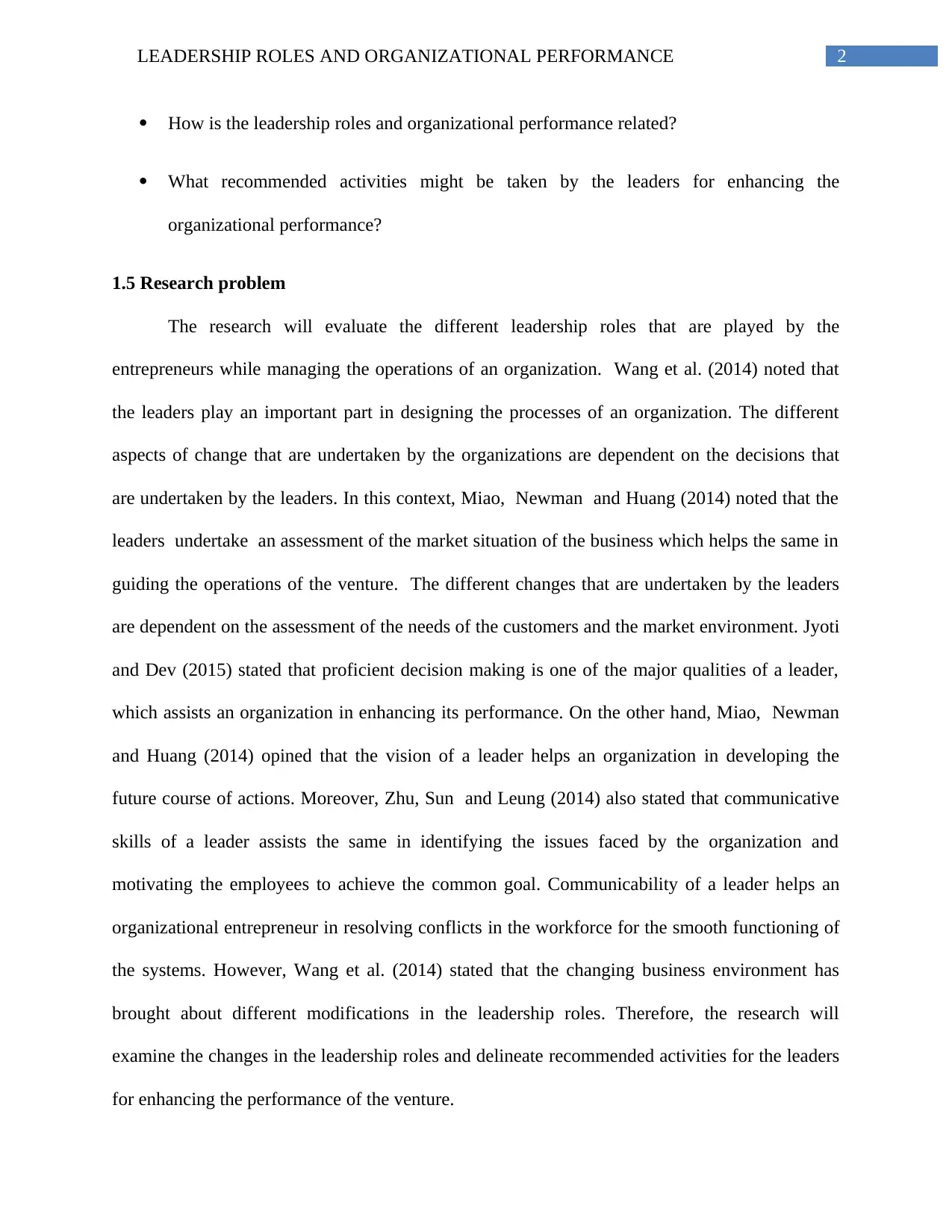

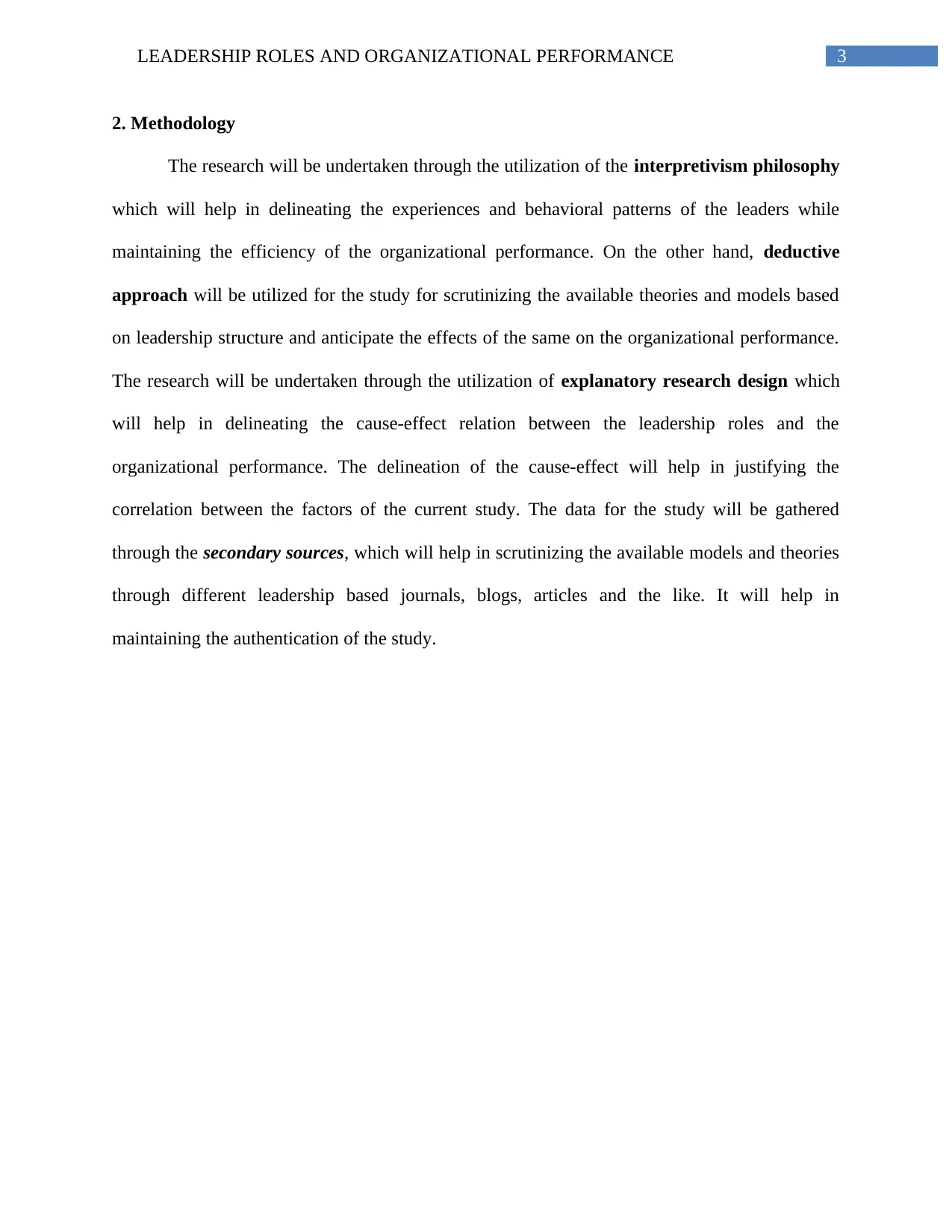
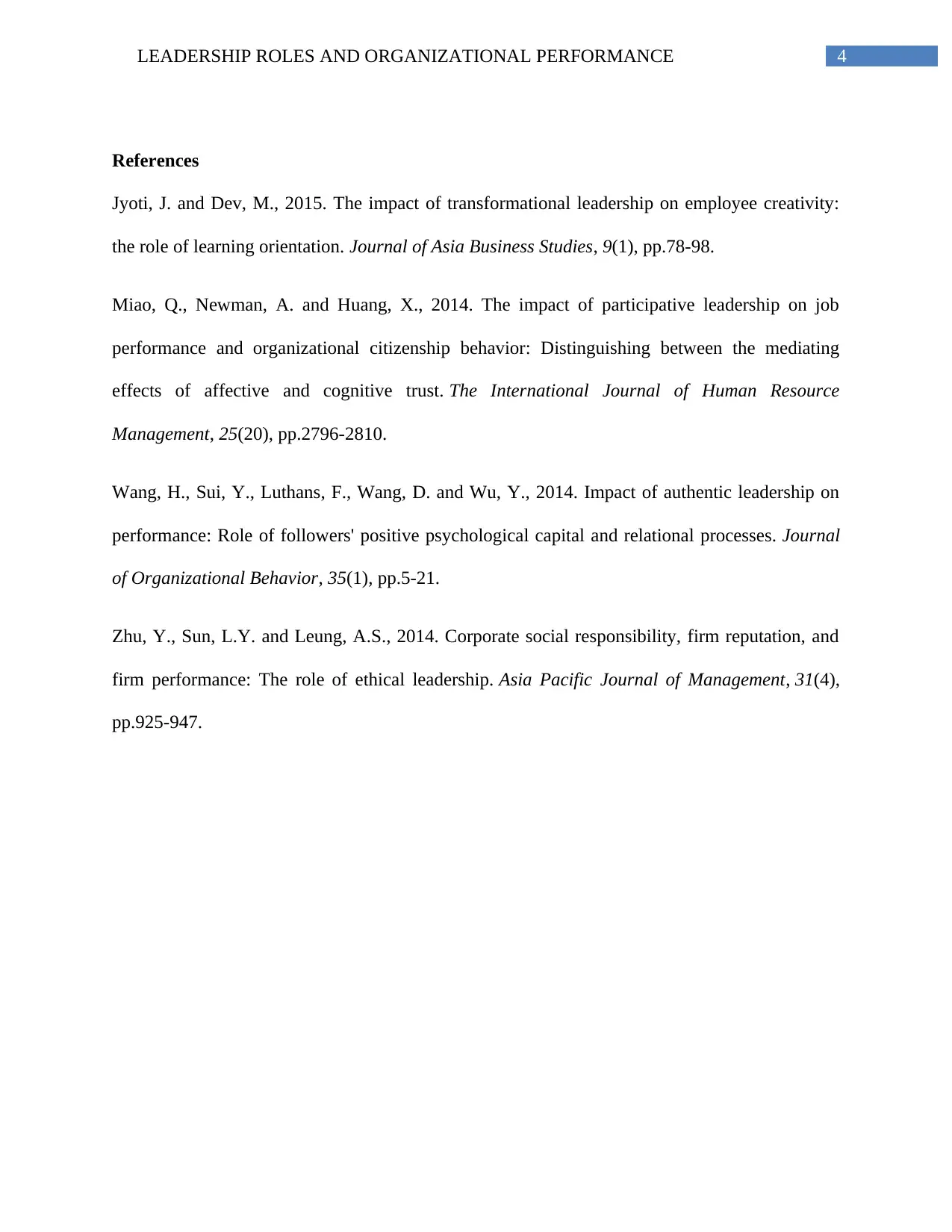






![[object Object]](/_next/static/media/star-bottom.7253800d.svg)